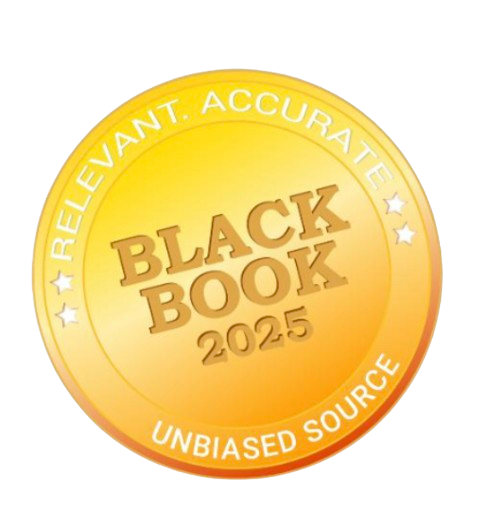.webp)
How Medical Coding Artificial Intelligence is Revolutionizing RCM: A Deep Dive into the Future of Healthcare
The Evolution of Medical Coding
Medical coding has long been a cornerstone of the healthcare industry, translating clinical documentation into standardized codes that facilitate billing, reimbursement, and record-keeping. Traditionally, this process relied heavily on manual labor, with coders meticulously sifting through extensive medical records and coding manuals. This manual approach, while effective, is time-consuming, prone to errors, and often leads to revenue leakage. However, the advent of artificial intelligence (AI) is set to transform this landscape, bringing unprecedented efficiency, accuracy, and scalability to the medical coding process.
Understanding AI in Medical Coding
Artificial intelligence, particularly machine learning and natural language processing (NLP), is reshaping the way medical coding is conducted. AI algorithms are trained to recognize patterns, interpret medical language, and assign appropriate codes with remarkable precision. This technology enables healthcare providers to streamline their coding processes, reduce errors, and ensure compliance with the latest coding standards.
One of the leading AI-powered solutions in this domain is RapidClaims, which integrates cutting-edge AI technology into the medical coding workflow. By automating routine coding tasks, RapidClaims allows coders to focus on more complex cases that require human expertise, thereby enhancing the overall efficiency and accuracy of the coding process.
The Process: How AI Transforms Medical Coding
1. Data Acquisition and Preparation
The foundation of AI in medical coding lies in the acquisition and preparation of vast amounts of medical data. This data, sourced from electronic health records (EHRs), lab results, and patient histories, is meticulously cleaned and formatted for machine learning algorithms. The accuracy of AI in coding depends significantly on the quality of the data it is trained on, making this initial step crucial.
2. AI Algorithm Training
Once the data is prepared, AI systems are trained to recognize and interpret medical information. These algorithms learn to associate diagnoses, symptoms, and procedures with relevant coding systems like ICD-10-CM, CPT, HCPCS, and ICD-10-PCS. Over time, the AI system improves its accuracy by continually learning from new data and refining its coding predictions.
3. Natural Language Processing (NLP) in Action
NLP is a key component of AI in medical coding, enabling the system to understand the nuances of medical terminology within patient records. By extracting critical information and converting it into standardized codes, NLP ensures that the AI can handle complex medical language with the same accuracy as a skilled human coder.
4. Code Selection and Assignment
Using its acquired knowledge, the AI system selects the most appropriate codes for each diagnosis, symptom, and treatment documented in the patient's records. This process minimizes the risk of human error and ensures that all relevant codes are captured accurately. AI-powered coding tools like RapidClaims offer the added benefit of cross-referencing codes against patient history and other contextual factors, further enhancing accuracy.
5. Validation and Quality Control
Even with advanced AI, human oversight remains essential. AI-generated codes are validated against those assigned by human coders to identify any discrepancies. This validation process not only ensures compliance with coding standards but also provides valuable feedback for refining the AI system, making it even more reliable over time.
6. Seamless Integration with Healthcare Systems
After validation, the AI-powered coding system is seamlessly integrated into existing healthcare infrastructures, such as EHRs and billing platforms. This real-time integration reduces the workload on human coders, promotes efficient documentation, and speeds up the billing process. RapidClaims excels in this integration, ensuring that the transition to AI-powered coding is smooth and minimally disruptive to existing workflows.
The Impact of AI on Revenue Cycle Management (RCM)
AI in medical coding is not just about improving the coding process itself; it has far-reaching implications for revenue cycle management. By enhancing the accuracy and efficiency of coding, AI helps healthcare organizations reduce claim denials, accelerate reimbursements, and improve overall cash flow.
For RCM teams, AI tools like those offered by RapidClaims provide powerful insights into coding trends and areas for optimization. By automating routine tasks, these tools free up RCM professionals to focus on higher-value activities, such as resolving complex coding issues and optimizing revenue cycle performance. The result is a more streamlined, efficient, and financially healthy healthcare organization.
Benefits of AI in Medical Coding
1. Enhanced Accuracy
One of the most significant benefits of AI in medical coding is the substantial improvement in accuracy. AI algorithms can process large volumes of data and identify patterns that might be missed by human coders. This leads to more precise coding, reducing the risk of errors that could result in claim denials or revenue leakage.
2. Increased Efficiency
By automating routine coding tasks, AI allows healthcare providers to complete coding assignments faster and more efficiently. This increased efficiency not only speeds up the billing process but also reduces the administrative burden on healthcare staff, allowing them to focus on patient care and other critical tasks.
3. Cost Savings
AI in medical coding can lead to significant cost savings for healthcare organizations. By reducing the need for manual coding, AI lowers labor costs and minimizes the financial impact of coding errors. Additionally, faster and more accurate coding translates into quicker reimbursements, improving the organization's financial health.
4. Compliance and Scalability
Staying compliant with the latest coding standards is a constant challenge for healthcare providers. AI-powered coding tools like RapidClaims are designed to automatically update their coding rules based on the latest regulations, ensuring ongoing compliance. Moreover, these tools are highly scalable, capable of handling large volumes of coding tasks without compromising accuracy or efficiency.
Case Study: The Success of AI in Medical Coding
To illustrate the impact of AI in medical coding, let's consider a real-world example. Ortmann Healthcare, a medium-sized healthcare provider, was struggling with manual coding processes that were slow, error-prone, and costly. By implementing an AI-powered coding tool, Ortmann Healthcare was able to streamline its coding operations, reduce errors, and improve compliance with coding standards.
The AI tool, similar to RapidClaims, automated routine coding tasks and provided real-time validation and quality control. As a result, Ortmann Healthcare saw a significant improvement in coding accuracy, faster reimbursement times, and a reduction in administrative overhead. This case study highlights the transformative potential of AI in medical coding, offering a glimpse into the future of healthcare.
The Future of Medical Coding with AI
As AI technology continues to evolve, its role in medical coding will become increasingly indispensable. While AI will not replace human coders, it will augment their capabilities, allowing them to focus on complex cases that require clinical judgment and expertise. The future of medical coding lies in the seamless integration of AI and human intelligence, creating a more efficient, accurate, and scalable coding process.
RapidClaims is at the forefront of this revolution, offering AI-powered solutions that enhance the accuracy and efficiency of medical coding. By leveraging the latest advancements in AI and NLP, RapidClaims is helping healthcare providers navigate the complexities of medical coding and revenue cycle management, ensuring they remain competitive in an increasingly challenging industry.
Conclusion
AI is revolutionizing the field of medical coding, offering unprecedented opportunities for healthcare providers to improve accuracy, efficiency, and compliance. By integrating AI-powered tools like RapidClaims into their workflows, healthcare organizations can streamline their coding processes, reduce costs, and enhance the overall quality of care. As AI continues to advance, its role in medical coding will only grow, making it an essential tool for healthcare providers looking to thrive in a rapidly changing landscape.
The future of healthcare is bright, with AI paving the way for more efficient and accurate medical coding. By embracing this technology, healthcare providers can position themselves at the forefront of innovation, delivering better outcomes for patients and ensuring their financial health in an increasingly competitive market.
%201.png)







